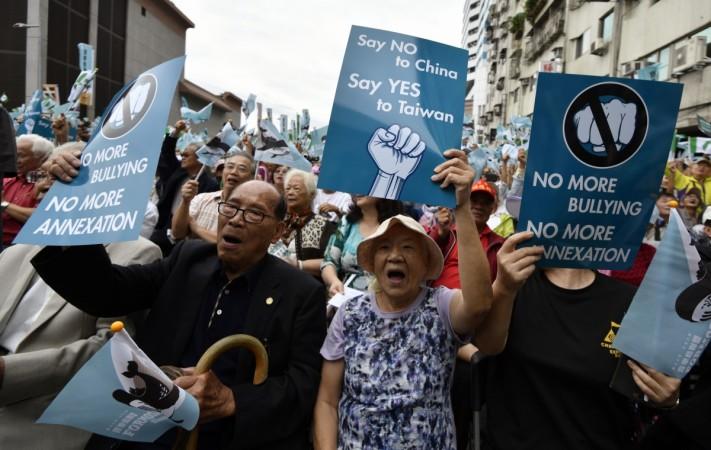
China on Sunday welcomed the defeat of Taiwan's pro-independence ruling Democratic Progressive Party (DPP) at local elections, saying it showed people wanted peaceful relations with Beijing.
Taiwan President Tsai Ing-wen, who faces re-election in a little more than year, on Saturday resigned as chairwoman of the DPP, taking responsibility for her party's massive defeat at the mayoral and county elections.
The DPP has now been left in control of only six of Taiwan's cities and counties, compared with at least 15 for the China-friendly Kuomintang party. Significantly, it lost one of its most steadfast strongholds, the southern city of Kaohsiung.
"The (election) results reflected the strong will of the Taiwan public in hoping to continue to share the benefits of the peaceful development of relations across the Taiwan Strait, and their strong wish in hoping to improve the island's economy and people's wellbeing," said a statement by China's policy-making Taiwan Affairs Office and carried by state media.
Since Tsai took office in 2016 China has ramped up pressure on Taiwan, suspicious Tsai wants formal independence, a red line for Beijing which regards Taiwan as its own. Tsai says she wants only the status quo, but will defend Taiwan's security.
Tensions across the Taiwan Strait have heightened recently with China conducting military drills around the island and snatching away Taiwan's dwindling number of diplomatic allies.
In the run-up to the elections, Tsai and her government said China was trying to sway voters with 'political bullying' and 'fake news', accusations Beijing denied.
DPP Secretary General Hung Yao-fu, asked on Saturday about whether the China factor had played a role in influencing the elections, reiterated there had been a problem with 'fake news'.
"I think this time was a deep lesson, in terms of fake news messing up with a lot of people's judgment or not getting clear information," he told reporters.
"This is a global problem not just Taiwan's unique problem. In facing this issue and how to solve I think our party will reflect and find a way to handle it."
The election drama has not ended, with the Kuomintang's mayoral candidate in Taiwan's capital Taipei challenging his defeat.
Ting Shou-chung said on Sunday he was disputing the results, which gave a narrow victory to incumbent mayor Ko Wen-je, an independent. The DPP candidate came a distant third.
The Kuomintang once ruled China before fleeing to Taiwan in 1949 after losing China's civil war to the Communists.
Electors were also asked to vote in a series of referendums, including on whether the island should join the 2020 Tokyo Olympics as Taiwan, rather than 'Chinese Taipei' the name agreed under a compromise signed in 1981.
Not enough votes were cast to make the results valid, and in any case more people voted against a name change than for one.
China's Taiwan Affairs Office, responding to that vote, said that it showed 'putting Taiwanese athletes' interests at stake is against people's will. "The attempts of 'Taiwan independence' are doomed to fail," it added.
A vote to compete under a Taiwan banner would have riled Beijing, which has never renounced the use of force to bring the island under its control.

















